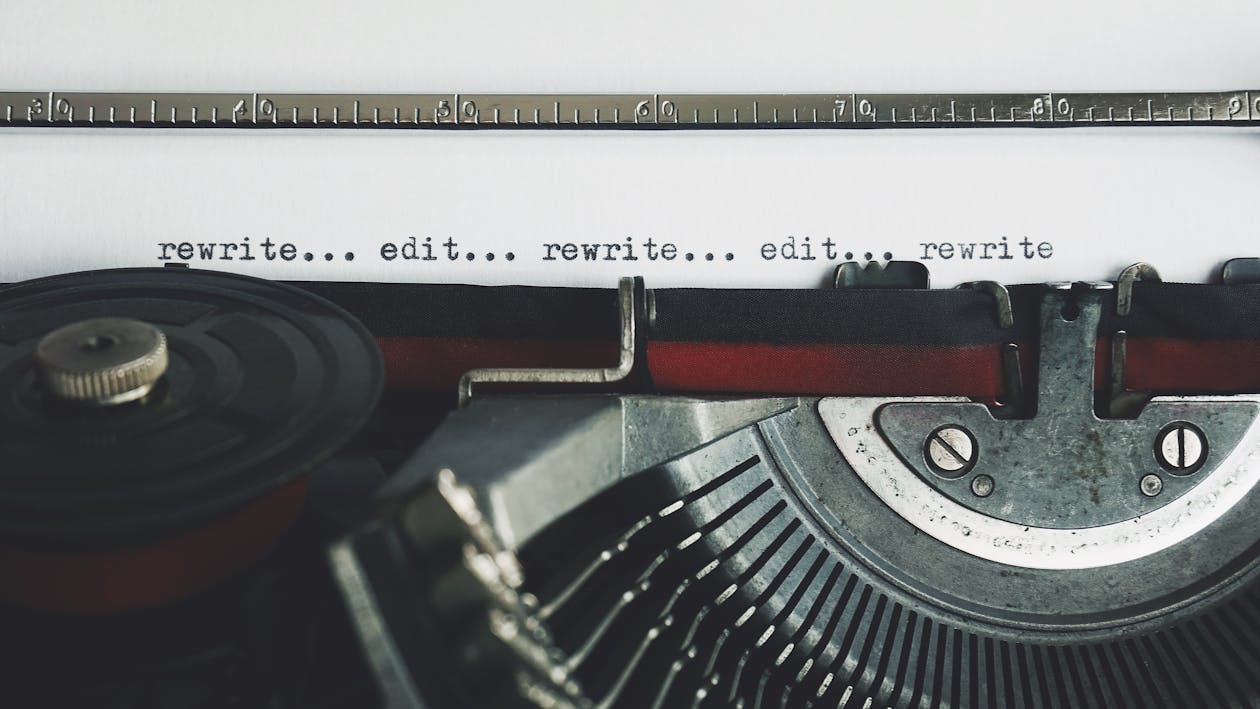I often get the question: how are you so mad to even start writing a book and actually publish it? There’s a simple answer to that question: because I want to share my fantasy with others, to create a world for myself that I can let others relive. Now, non-writers often ask me how I even get started and how I finish, since most of them struggle with that last part. So, who am I to not share my wisdom and advice to those who seek this? Because everyone, can become a book writer.
Phase 1 (starting process)
- Determine what the book is about
You’ve got this story in your head, something that needs to come out on paper. So, that’s actually where you start. Write your story idea in one sentence, stretch that sentence out to a paragraph and then to a one-page outline. After that, write a table of contents to help you guide whilst writing. Break each chapter in sections, think of your book in terms of start, middle and end.
2. Use a daily word count goal
When you write a page a day, you’ll have a novel in a couple of years. A page a day is only about 300 words, a novel mostly about 70.000. But, you don’t need to write a lot; you just need to write often. So, setting a daily goal will help you to aim for something. Make it small and easy to achieve, so you can hit your goal each day to get the flow.
3. Set a daily deadline to work on your book
Consistency makes creativity easier. When you set a daily deadline for yourself, you’ll finish writing your book. Though, feel free to take a day off if you want, just make sure you schedule ahead of time. Don’t let a deadline pass as it’ll be your regular writing time, ensuring you to not think about when you’ll write. When it’s time, it’s time.
4. Keep the same location for writing
It doesn’t matter where it is; it could be a desk, in the library or the kitchen table, but do it where you don’t do any other activities. Make it a space that once you enter, will be your workspace. And you’re ready to get work done. It reminds you of your commitment to finish this book. And remind yourself that the goal is to not think, but to just start writing.

Phase 2 (the actual work)
5. Give yourself a total word count
Start with the end in mind. Once you start writing, you’ll need a total word count for your book. Think in terms of 10.000 steps and break each chapter into equal lengths. Some general guiding principles:
- 20.000 words = short eBook (read time, 1-2 hours)
- 40.000 – 60.000 words = standard (non)fiction book/novella (read time, 3-4 hours)
- 60.000 – 80.000 words = long (non)fiction book/standard-length novel (read time, 4-6 hours)
- 80.000 words – 100.000 words = very long (non)fiction book/long novel (read time, 5-7 hours)
- 100.000+ words = epig-length novel/academic book/biography (read time, 6-8 hours)
6. Set a weekly deadline
Remember the daily goal? We’ll now turn it into a weakly one. Make it important to keep things objective. Celebrate the progress you’ve made, but keep in mind how much work is left to do. You need to stay focused and a way to measure yourself.
7. Get feedback
Nothing is worse than writing a book and having to rewrite it because you didn’t let anyone read it beforehand. Take someone you trust to help you determine if it’s worth publishing or not. It can be a friend, a family member, an editor. Just ask someone who’ll give you honest feedback as early as possible.

Phase 3 (finishing)
8. Commit to publishing
No matter what, you have to finish the book. Set a deadline or make someone set one for you. After that, it’s time to release it into the world. Send it to a publisher, release it on Amazon or find a different way to get it in front of people. Don’t put it in your drawer; don’t quit when you’re done writing. It won’t allow you to share your ideas with the world.
9. Embrace faults and failure
Of course any writer will mess up at some point. That’s a part of the process and is therefore okay. You just have to accept that failing isn’t the end of the world. Give yourself some grace, since that’ll help you to continue. Get rid of your high standards of reaching perfection.
10. Write another one
Most writers are embarrassed with their first book (as am I). However, you wouldn’t learn any lessons without that first book. You would’ve missed out on so many things you learned during the writing process and afterwards. So, put your work out there, fail and try again. This is the only way for you to get better. You have to practice, which means you have to keep writing.

Love, Deem ❤
You can also follow me on Facebook, Twitter, Instagram and Twitch
Image source: Pexels

I think I’ll join you in the, “I am so embarassed about my first book” club!
Thanks for these tips!
LikeLiked by 2 people
I’m joining as well… I tried to rewrite my first book but haven’t been able to overcome the cringeness😅, so I just wrote new stories… I hope I will get to edit it one day!😆
LikeLiked by 2 people
I actually did rewrite my own, but it weirdly enough made it worse? So I stopped and considered it a lost cause haha
LikeLiked by 1 person
Lol… Sorry about that 😃😃😃
LikeLiked by 1 person
It’s okay haha, part of the job
LikeLike
Glad I’m not the only one on that part haha. And you’re welcome!
LikeLiked by 1 person
Thank you for these helpful tips!
LikeLiked by 1 person
You’re welcome!
LikeLike
It sounds so easy haha
LikeLiked by 1 person
Haha I know 😉
LikeLike
I guess I’m gonna write a book now 🙂
LikeLiked by 1 person
You should!
LikeLike
So much more helpful than the Thomas Wolf quote! lol
LikeLiked by 1 person
Haha glad to hear that!
LikeLiked by 1 person
I wish I had the ability to think of a story, but it’s not my thing
LikeLiked by 1 person
Which is understandable!
LikeLike
Thank you gladly for this guide 😀
LikeLiked by 1 person
You’re welcome!
LikeLike
You make it sound so easy haha. I’ll try to follow this and see where I end up ^^
LikeLiked by 1 person
Haha good luck!
LikeLike
Will try and discipline myself about the deadline, I’m too free about that😅. The word count tip is awesome👍, I never thought about it👍
Thanks for the tips, Deem!
LikeLiked by 1 person
You’re welcome! I hope it’ll help you to get creative!
LikeLiked by 1 person